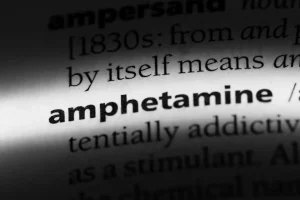
These include itchy or flushed skin, red eyes, facial swelling, runny nose, and congestion. A reaction to high-histamine foods could be a sign of histamine intolerance. Your body has two enzymes that are supposed to break down histamine, but sometimes they don’t work as well as they should. Alcohol allergies can cause your throat to feel tight, as if it’s closing up a bit. You can experience wheezing, shortness of breath, and coughing fits because of this, says Dr. Glatter. What’s more, «people with sinus problems may also develop more pronounced upper respiratory symptoms, including nasal congestion, stuffiness, and facial pressure» when they drink, he adds.
Alcohol Allergy Treatment and Prevention
- What’s more, «people with sinus problems may also develop more pronounced upper respiratory symptoms, including nasal congestion, stuffiness, and facial pressure» when they drink, he adds.
- People of East Asian descent are more likely to have the inherited genetic mutation that causes alcohol intolerance, so they develop the condition at higher rates.
- Individual sensitivity to histamine varies, and not everyone will experience allergic-like reactions to histamine-rich alcoholic beverages.
- The combination of reduced enzyme activity, slower liver function, and potential medication interactions can all add up, making your body more sensitive to alcohol.
Dr. Adam Richmond, a regional medical director with The Recovery Village told Newsweek that there is a common misconception between an alcohol allergy and alcohol intolerance. While it’s easy to get confused between the two, they’re actually very different conditions. When we drink alcohol, an enzyme in our bodies called alcohol dehydrogenase (ADH) breaks it down into a compound called acetaldehyde. Another enzyme, aldehyde dehydrogenase (ALDH), then turns acetaldehyde into non-toxic acetic acid (vinegar).
- This is caused by inherited (genetic) traits most often found in Asians.
- Your body has two enzymes that are supposed to break down histamine, but sometimes they don’t work as well as they should.
- If a person thinks they have an alcohol allergy, they should eliminate alcohol from their diet and consult with a healthcare professional.
- Combining alcohol with certain medications also can cause reactions.
Be wary of alcohol consumption if you have asthma or hay fever.

Generally, the symptoms of an alcohol allergy can be very similar to those of a food allergy. If you think you may have an alcohol allergy, it’s vital to speak to your doctor before drinking alcohol again. While an allergy to alcohol is rare, an allergy or intolerance to ingredients used to make wine, beer, or distilled spirits can.
How is alcohol allergy diagnosed?
- It also offers tips on how to drink alcohol safely if you have an allergy or intolerance to any ingredient used to make wine, beer, or distilled spirits.
- A food and symptom diary can help you keep track of when your symptoms appear and whether they line up with certain things—such as alcohol.
- Plus, avoiding alcohol lowers your risk for cancer and other serious diseases.
- While organic wines cannot add sulfites to their products by law, some contain enough natural sulfites to trigger a reaction in sensitive people.
Typically, white wine has a higher level of sulfites than red wine or beer, although the chemical is found in all three types of drinks. Looking for alcohol beverages that are gluten-free is a simple, surefire way to limit your reaction if gluten allergic to whiskey is the issue. If you love drinking beer because of the taste but hate getting a negative reaction, you may have a better experience drinking alcoholic-free beer instead. People with sulfite allergies will likely need to avoid red wine.

Cooking with alcohol
Present in abundance, particularly in red wines, histamine can be the instigator of headaches, flushing, nasal symptoms, gut disturbances or even asthma. Those intolerant to histamine may grapple with these symptoms because their body is unable to break down and eliminate this compound. These reactions, more often than https://ecosoberhouse.com/ not, are attributed to alcohol exacerbating underlying conditions like asthma, urticaria (hives) and rhinitis. The reason is that alcohol dilates blood vessels, which then sets the stage for a symphony of bodily responses. If the allergic reaction is more severe, people may require epinephrine, also known as an EpiPen.

- If you are allergic to these ingredients, your skin will itch or you’ll get a rash during the test.
- To boot, alcohol also inhibits the production of diamine oxidase (DAO), an enzyme responsible for breaking down histamine in the body.
- Many people confuse this symptom as a simple negative side effect of drinking alcohol.
- The content of this article is not intended to be a substitute for professional medical advice, examination, diagnosis, or treatment.



